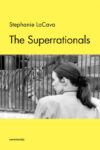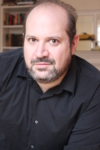 Last winter, Full Stop introduced “The Situation in American Writing,” a questionnaire adapted from The Partisan Review that asked questions about literature’s responsibility to address seismic changes in culture, the publishing industry, and the political and geopolitical landscape. That questionnaire, which featured responses from Marilynne Robinson, George Saunders, Victor LaValle, T.C. Boyle, Dana Spiotta, and dozens of other writers was illustrative of the concerns and preoccupations that writers carry with them when practicing their craft.
Last winter, Full Stop introduced “The Situation in American Writing,” a questionnaire adapted from The Partisan Review that asked questions about literature’s responsibility to address seismic changes in culture, the publishing industry, and the political and geopolitical landscape. That questionnaire, which featured responses from Marilynne Robinson, George Saunders, Victor LaValle, T.C. Boyle, Dana Spiotta, and dozens of other writers was illustrative of the concerns and preoccupations that writers carry with them when practicing their craft.
This year we are interested in the situation of writers, rather than writing, in the subjective experience of writing fiction (or in this case, memoir), rather than fiction’s responsibilities to respond to a rapidly changing world. To this end we are interested in examining the trying intellectual, creative, and emotional labor that is often unacknowledged or effaced in the public presentation of writing. What we’re interested in, to put it another way, is pathos.
This year, we’ve crafted a questionnaire asking writers about the effect writing has had on their physical, emotional, and economic health; on the idea of poverty being a precondition for writing well; on what makes writing truthful to one’s self and to readers. Ultimately, we are interested in the consequences of pursuing writing as a vocation.
Stephanie LaCava’s work has appeared in Vogue, The Paris Review, T: The New York Times Style Magazine, Interview, and Garage. An Extraordinary Theory of Objects, a memoir, is her first book.
How has your decision to write affected your health? Has it had negative effects on your personal life?
I think it’s what has enabled me to be at all normal. It’s crazy, but I’ll tell you a secret. I used to ask people when I was little, “What do you think about when you’re not thinking about anything?” I think about my writing and creating stories. It’s had positive effects on my personal life as I can channel the questions and ruminating thoughts on paper. I can also act out the flip side of decisions.
There is long tradition that links the craft of writing with poverty. Do you think that’s appropriate? Does poverty feel like the most appropriate condition for your practice as a writer?
Need is essential to be a writer. Something needs to push you otherwise you’d keep it all for you. For some, to make a living may prompt this and is a reason for much of journalism. For others, it’s a need for something like therapy or in more extreme cases a kind of possession. You also need practice, practice, practice and sometimes having wealth can lead to things that distract from refining your craft.
In a rare 1983 interview the enigmatic and often dour Romanian writer Emil Cioran speaks about only reading Nietzsche’s letters because he became concerned with how untruthful Nietzsche’s published works seemed when read against the miserable condition of his day to day existence (isolated, weak, sickly, certainly not characterized by any sense of vigor). Is there any sense in which the truth of one’s condition should be related to the truth of one’s writing, even if in an oblique sense?
How can it not be? Even if it’s the exact opposite this voice comes from raging against what’s true. That passion’s made possible by one’s condition. Love is so close to hate.
Are you envious of other people’s success? If so, are you more envious of people’s success in your field or outside of it? Why?
I just want to be able to take care of myself and my family and have access to travel and education and if I can get there self sufficiently and do what I love, I will be happy.
Aside from writing, do you have any other marketable skills? If so, are you ever tempted to cease writing fiction entirely so you can live a more stable life?
Are insanity and hyperactivity marketable skills? What about putting together an outfit? Am kidding on both, so I guess I have no choice.
Give one example in which you had high hopes for success (artistic, commercial, or otherwise) but had those hopes dashed.
There are too many to choose from. I’ve been knocked down a lot for a young person and it’s only made me try harder and learn from past mistakes. When there’s more distance, I’ll be able to share.
Do you feel like the world owes you a chance to make a living as a writer?
Definitely not. But, I owe the world to try to write.
What is the strongest emotional reaction you have ever elicited from a reader, either in your written work or during a reading? What is the strongest emotional reaction you have ever elicited from yourself during the writing process?
I’ve had a lot of people cry and tell me they completed related with my own story. In the end, that’s all you really want. It’s that ecstatic place where you understand that you’ve hit on something universal either in another’s writing or created it in your own.
When are you at your most truthful as a writer?
When I write very early in the morning.
This post may contain affiliate links.







